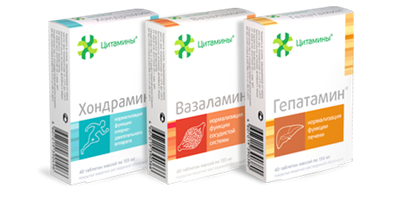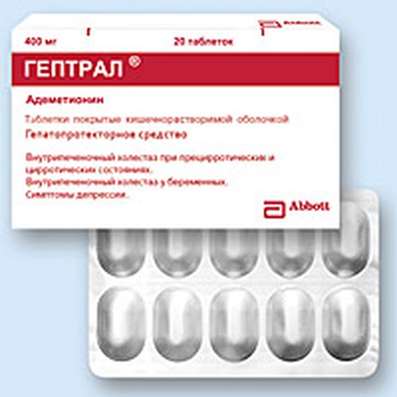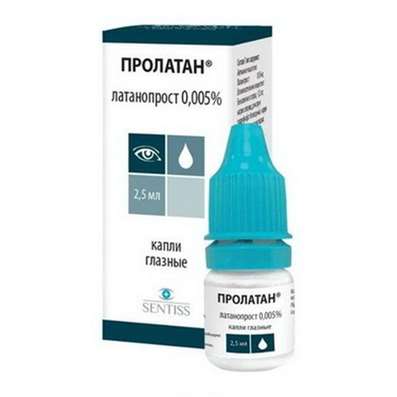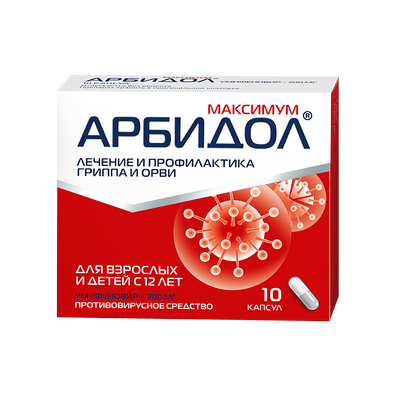Instruction for use: Gonadotrophin chorionic for injections
I want this, give me price
Active substance: Chorionic gonadotropin
ATX code G03GA01 Chorionic gonadotropin
Pharmacological group
Hormones of the hypothalamus, pituitary gland, gonadotropins and their antagonists
Nosological classification (ICD-10)
E23.0 Hypopituitarism
Kalmann's syndrome, Infantilism pituitary, Dwarfism is cerebral-pituitary, Cachexia pituitary, Cachexia diencephalo-pituitary, Anovulatory disorders, Symmonds disease, Secondary hypogonadism in men, Secondary hypogonadotropic hypogonadism, Hypogenitalism, Hypogonadism, Hypogonadism hypogonadotropic, Hypogonadism of the pituitary, Hypogonadism in men, Hypogonadotropic hypogonadism, Hypopituitarism, Pituitary insufficiency, Lack of growth in children with hypopituitarism, Pangypopituitarism, Primary hypogonadism, Primary hypogonadotropic hypogonadism, Shihan Syndrome, Shihina's Syndrome, Symmonds-Glinsky disease, Laron's dwarfism, Sheena's Syndrome, Syndrome of a fertile eunuch
E23.6.0 * Adiposogenital Syndrome
Adiposogenital Syndrome
E23.7 Pituitary disease, unspecified
Interstitial-pituitary insufficiency, Infertility due to hypothalamic-pituitary dysfunction, Disruption of the pituitary gland, Insufficiency of the anterior lobe of the pituitary gland, Diagnosis of disorders of gonadotropic pituitary gland function, Cerebrohypophyseal disease
E25 Adrenogenital disorders
Macroghenytozomy in boys, Adrenogenital syndrome, Decreased function of the sex glands, Congenital dysfunction of the adrenal cortex, Apera-Halle Syndrome, Crook-Apera-Halle Syndrome
E28 Ovarian dysfunction
Dysfunction of the sex glands, Abnormal ovarian function, Non-functioning ovaries, Primary dysfunction of the ovaries, Decreased function of the sex glands, Estrogen insufficiency
E28.3 Primary ovarian failure
Hypogonadism of the ovary (primary), Hypofunction of the ovaries, Estrogen deficiency, Insufficient estrogen content in the body, Insufficiency estrogenic, Insufficiency of estrogens, Primary dysfunction of the ovaries, Estrogen-deficient conditions
E29 Testicular dysfunction
Hypofunction of gonads in men, Androgenic dysfunction, Dysfunction of the sex glands, Dysfunction of gonads in men, Underdevelopment of the genitals in men, Primary hypogonadism in men
E29.1 Testicular function
Leydig cell aplasia, Hypogonadism testicular (primary), Androgen deficiency, Eunuchism, Insufficiency androgenic, Reduced function of the sex glands, Androgen insufficiency, Insufficiency of testosterone, Hypoplasia of the testes, Hypofunction of gonads in men, Insufficiency of androgens in men, Insufficiency of Leydig cells
E30.0 Delay in puberty
Later sexual development, Sexual maturation later
E34.3 Low-growth [dwarfism], not elsewhere classified
Growth retardation, Growth retardation in children, Dwarfism, Nanism hypophyseal, Inadequate endogenous growth hormone, Growth Hormone Deficiency, Pituitary Nanism, Low height, Growth disorder, Disturbance of the growth process, Pituitary dwarfism, Disruption of endogenous hormone secretion with growth retardation, Growth disorders, Naniz disproportionate, Nanism associated with external factors
N94.6 Dysmenorrhea Unspecified
Pain during menstruation, Functional disorders of the menstrual cycle, Menstrual cramps, Emmeniopathy, Pain during menstruation, Painful menstrual irregularities, algomenorrhea, algomenoreya, Pain smooth muscle spasm, Pain spasm of smooth muscles (renal and biliary colic, intestinal spasms, dysmenorrhea), Pain spasm of smooth muscles of internal organs (kidney and biliary colic, intestinal spasms, dysmenorrhea), Disalgomenoreya, dysmenorrhea, Dysmenorrhea (essential) (Exfoliative), menstrual disorder, menstruation painful, metrorrhagia, Violation of the menstrual cycle, Menstrual irregularities, Prolaktinzavisimoe menstrual disorders, Prolaktinzavisimoe menstrual dysfunction, Pain spasm of smooth muscles of internal organs, Spasmodic dysmenorrhea, Primary disalgomenoreya
N97 Female infertility
Female infertility in anovulation, Hyperprolactinemic infertility, Hyperprolactinaemia with infertility, Endocrine infertility, Infertility due to hypothalamic-pituitary dysfunction, Infertility infertility, Infertility, Infertility on the background of hyperprolactinaemia, Functional infertility, Marriage is infertile, Infertility of ovarian genesis, Stimulation of the growth of a single follicle
O20.0 Threatened abortion
Abortion threatening, threatening miscarriage, Spastic conditions with the risk of abortion, Threatened miscarriage in the first trimester of pregnancy, The threat of miscarriage, threatened abortion, The threat of miscarriage, Threatened spontaneous miscarriage
Composition and form of release
1 bottle with lyophilized powder for the preparation of the injection contains gonadotropin chorionic 500 or 1000 units, complete with a solvent (solution of sodium chloride isotonic 0.9% in ampoules of 1 ml); In a pack of cardboard 5 sets.
Characteristic
White or almost white powder.
pharmachologic effect
Pharmacological action - gonadotropic.
Has gonadotropic, mainly luteinizing effect. In women, ovulation contributes, education and hormonal activity of the yellow body. In men, it stimulates the interstitial cells of the gonads, primarily Leydig cells, thereby enhancing testosterone synthesis and partially spermatogenesis, activating the development of genital organs and secondary sexual characteristics, and with cryptorchidism it helps to lower the testes.
Gonadotropin chorionic for injection
Reduction in the function of the sex glands in men and women due to disruption of the hypothalamus and pituitary gland: intermittent-hypophysial insufficiency (Simmonds disease, Shihan syndrome, panhypopituitarism of any etiology, adiposogenital dystrophy, pituitary dwarfism with the phenomena of sexual infantilism, hypogonadotropic hypogonadism with signs of eunuchoidism), anovulatory dysfunction Ovaries and associated infertility, later sexual development, habitual and threatening abortion in the first trimester of pregnancy, dysfunctional Maternal bleeding in women of childbearing age, bilateral cryptorchidism in children, unilateral cryptorchidism after surgical treatment in the presence of signs of eunuchoidism, differential diagnosis of primary and secondary hypogonadism in men.
Contraindications
Tumors of the pituitary gland, inflammatory diseases of the genital area, hormonal-active tumors of the gonads, absence of the sex glands (congenital or after surgery), early menopause, thrombophlebitis, breast-feeding.
pregnancy and lactation
At the time of treatment should stop breastfeeding.
Side effects
Allergic reactions, headache, depression, an increase in testicles in the inguinal canals, preventing their further omission; Premature puberty (with prolonged treatment or use in large doses in adolescents male with a violation of physical and sexual development), degeneration of the sex glands (with unreasonably long use of the drug in cryptorchidism, especially if surgical intervention is shown), atrophy of the seminiferous tubules (due to inhibition of production FSH as a result of stimulation of production of androgens and estrogens), a decrease in the number of spermatozoa in the ejaculate (with drug abuse in men).
Interaction
It is used in combination with gonadotropin menopausal in the treatment of infertility.
Dosing and Administration
In / m, in doses of 500-3000 units / day.
Men - 2-3 times a week, courses for 4 weeks with intervals of 4-6 weeks. Conduct 3-6 courses for 6-12 months; For diagnostic purposes - 1500-3000 units / day for 5 days.
Women with anovulatory cycles, starting from 10-12 days of the cycle, - 3000 ED 2-3 times with an interval of 2-3 days or 1500 ED 6-7 times every other day.
In pituitary hemorrhage with the phenomena of sexual infantilism - 500-1000 ED 1-2 times a week for 1-2 months repeated courses.
When cryptorchidism, children under 10 years of age - 500-1000 ED, 10-14 years - 1500 ED 2 times a week for 4-6 weeks repeated courses.
Overdose
Women may develop a syndrome of ovarian hyperstimulation with an increase in their size.
Precautionary measures
With care appoint to boys in the puberty period, patients with IHD, arterial hypertension, renal insufficiency, bronchial asthma, migraine.
special instructions
It is not recommended to use it too long because of the possible formation of antibodies and suppression of the gonadotropic function of the pituitary gland.
In women with the occurrence of ovarian hyperstimulation syndrome, the drug should be discontinued.
storage Conditions
In the dark place at a temperature of no higher than 20 ° C.
Keep out of the reach of children.
Shelf life
4 years.
Do not use after the expiry date printed on the package.

 Cart
Cart





